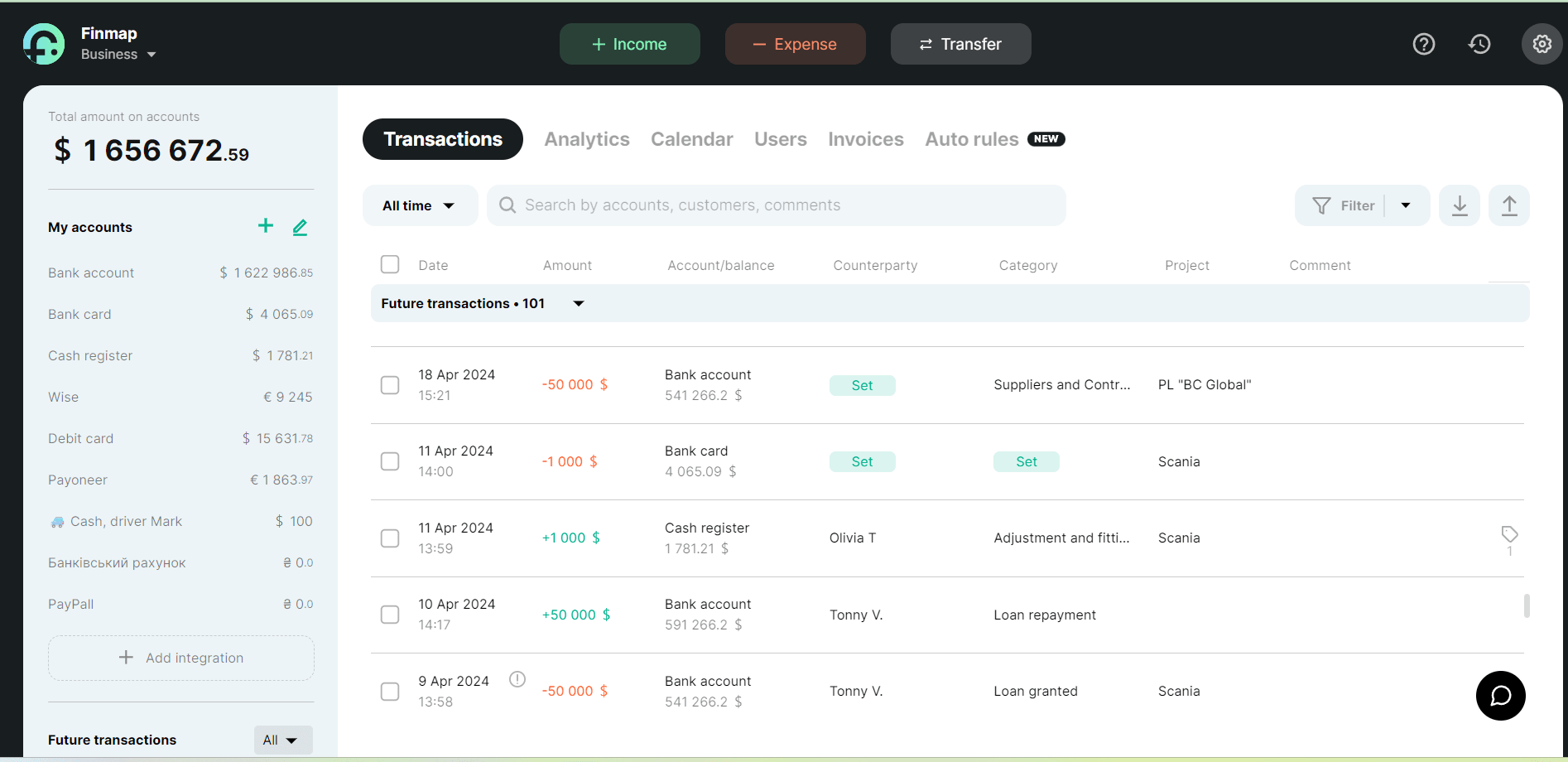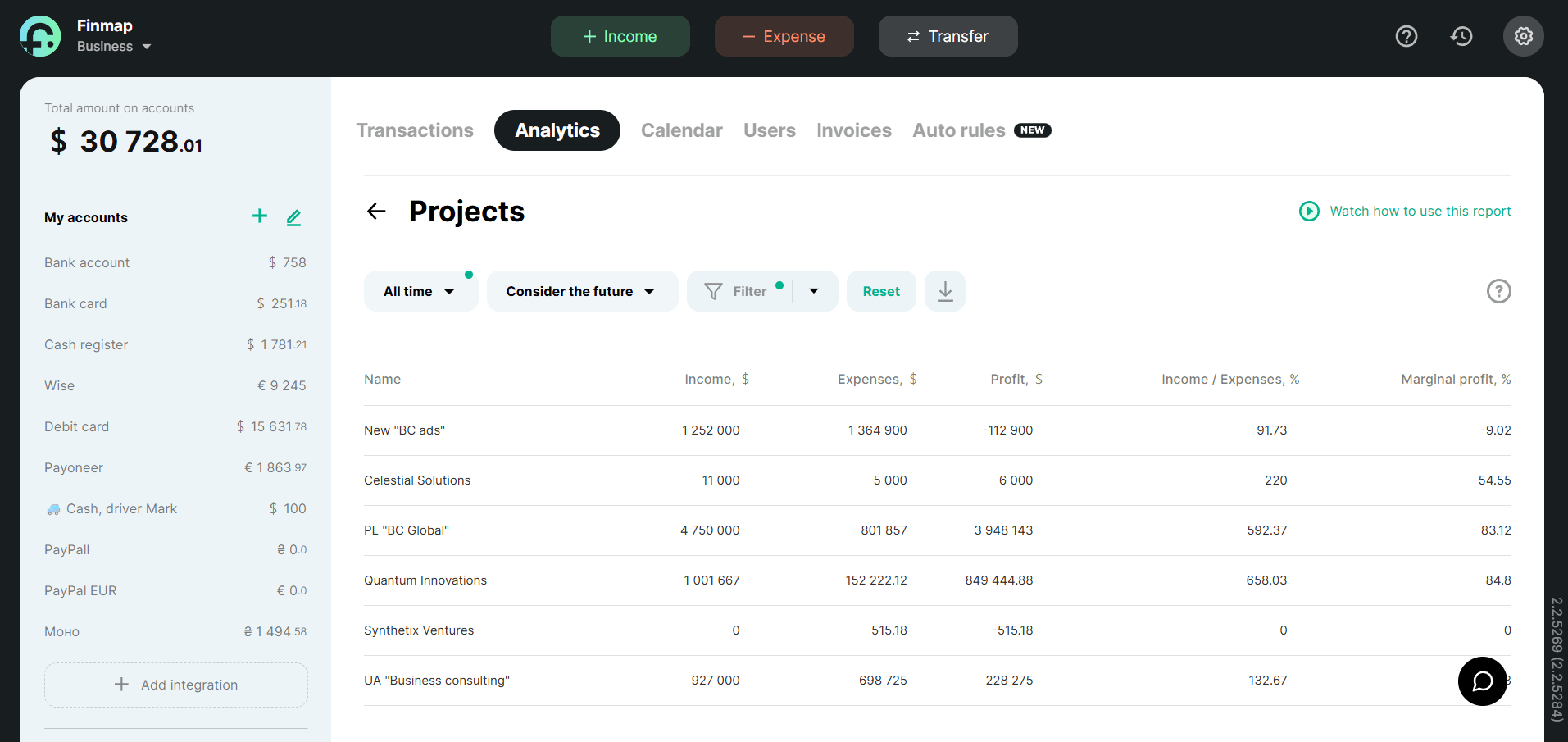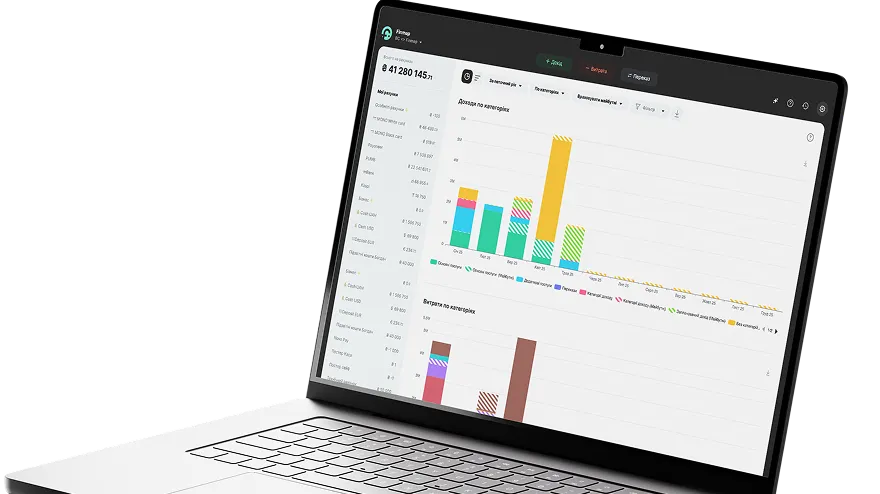The Secret to Profit: How Financial Management Can Help You Earn More
You work tirelessly, your team gives 100%, revenue flows in, yet by the end of the month, there’s barely any profit left. If this sounds familiar, you probably suspect that the issue isn’t low sales but rather a lack of clear financial visibility. This is where financial accounting comes to the rescue.
It’s not just numbers in Excel or reports for tax authorities. It’s a financial analytics system that reveals where your business is losing money and how you can preserve and multiply it.
.webp)
Why Financial Management Matters More Than a Business Owner’s Intuition
Let’s look at a real case involving one of our clients — entrepreneur Yevhen, who successfully transformed his business and doubled his profit. He owns a law firm operating in multiple areas but, for confidentiality reasons, has requested not to disclose its name.
Like many business owners, Yevhen saw the overall profitability of his company but lacked a clear understanding of the financial performance of each individual segment. This became a critical issue when he considered scaling and expanding into new markets.
A thorough analysis uncovered an unexpected reality: out of five business areas, only two were profitable, one was breaking even, and two were operating at a loss. This raised an important question: how could he adjust his current strategies to reduce losses and improve business efficiency?
The solution was drastic:
- Eliminate the break-even segment and redirect the team’s resources toward developing profitable services, enhancing their effectiveness.
- Shut down one unprofitable segment since it showed no growth potential.
- Retain the second unprofitable segment because it played a strategic role in attracting clients to profitable services. However, to stop it from generating losses, Yevhen had to optimize expenses and rethink operational processes.
The results were immediate: after the reorganization, only three segments remained, yet the company’s profit doubled the very next month. And all this — without hiring more staff, making additional investments, or acquiring new clients.
This story once again proves that without financial management, it’s difficult to identify a business’s weak points. Accurate financial data enables informed decision-making rather than relying on intuition, which can gradually lead a company to bankruptcy.
Key Elements of Effective Financial Management
For financial management to truly help increase profits, it’s not enough to simply collect data — you must also interpret it correctly. A clear financial structure allows you to quickly identify problem areas, make well-informed decisions, and grow your business without unnecessary financial risks.
What are the foundations of effective financial management? Let’s break down the essential elements that make it work.
1. Unified Data System
Settlement and card accounts, cash in any currency, even cryptocurrency — all financial flows should be consolidated into a single system. This ensures that records reflect not only legal entities but also real cash flows and company wallets.

As a business owner, you shouldn’t have to guess how much money is in the business — you need to see it clearly and instantly. How much cash is available right now? What is the actual profit? Where is the money going? These answers should be accessible in one click — without chaotic bank statements and endless spreadsheets.
2. Standardized Data
Without a unified system for collecting and analyzing financial data, there’s always a risk of losing control over finances, which can lead to inefficient resource management.
What does data standardization include?
- Clearly defined responsibilities. Each team member should understand their role in financial management and be accountable for their segment.
- Strict reporting deadlines. Timely data collection and reporting are not just good habits — they are the foundation for making informed and timely decisions.
- Structured income and expenses. Without clear categorization, it’s nearly impossible to assess the company’s true financial standing.
- Defined business segments and projects. If revenue-generating areas aren’t distinguished, measuring their profitability becomes impossible.
- Consistent profit and cost calculation rules. Without clear criteria for cost allocation, depreciation, and other expenses, financial reports become vague and unreliable.
3. Clear and User-Friendly Analytics
To make effective management decisions, a business needs a clear financial picture spanning several months or even years.
It’s crucial to present this data in a convenient format — charts, dashboards, and visual summaries all on one screen, rather than scattered across chaotic, manually compiled spreadsheets.
This approach eliminates time wasted on endless number crunching and allows leaders to focus on strategic decisions that drive business growth. Without such a system, a business is essentially operating blindly.
4. Segmented Profit Calculation
Profit shouldn’t be calculated only at the company-wide level—it must be broken down by projects, business lines, product groups, and sales channels. Additionally, tracking margin and profitability for each segment is essential.
Only a segmented approach enables entrepreneurs to clearly understand why profits are declining and what needs to be adjusted to reverse the trend. Without detailed insights, businesses risk overlooking critical shifts in specific areas and expenses that could significantly impact overall results.

5. Calculated Break-Even Point
How much do you need to sell — daily, monthly — to reach break-even? Where is the fine line between profit and loss, and how many sales are required for your business to become self-sustaining?
These figures must be precisely calculated. Continuously monitoring them allows for timely strategy adjustments and swift responses to market changes.
6. A Fixed Income and Expense Plan
Imagine this scenario: tomorrow, you need to pay a contractor, but your account balance is just enough to buy some cookies for tea. In a week, you’ll receive a large payment, but in the meantime, the contractor bombards you with frustrated messages and threats to terminate the partnership.
This doesn’t mean your business is unprofitable — it’s a classic cash flow gap, where incoming and outgoing funds are out of sync, leading to a temporary shortage for covering operational expenses.
Why endure unnecessary stress and waste time on apologies?
To avoid these situations and prevent every payment from becoming a crisis, you need a reliable tool — a Payment Calendar.
This will be your trusted ally in managing cash flow and planning expenses to avoid financial pitfalls. You can track all income and expenses in a simple Excel spreadsheet or use an automated solution. This way, you’ll not only know how much money is coming in and when but also plan your spending regardless of circumstances.
Business isn’t just about taking risks — it’s also about anticipating them.
.webp)
In essence, financial management is a navigator that helps design and optimize long-term business strategies, set realistic goals, achieve them, and build a stable, profitable company.
Simplify the Process with Finmap
A simple online financial management tool like Finmap can make this process effortless and transparent.
With Finmap, you can:
- See all your business finances on one screen.
- Generate automated financial reports in just two clicks.
- Plan income and expenses effectively.
- Delegate routine financial tasks to employees.
- Maximize your business profits.
Start building a successful future for your company today!




.webp)



.webp)
